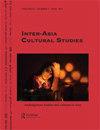回忆过去:总有一天我们会明白
IF 0.3
4区 社会学
Q4 ANTHROPOLOGY
引用次数: 2
摘要
Sim Chi Yin的《我们会理解的一天》讲述了1948年至1960年间发生在马来亚的一场冲突,英国殖民大国称之为马来亚紧急状态,游击队战士将其视为反殖民战争,称之为反英民族解放战争。自2015年以来,她通过照片、视频和声音装置、口述历史和实践博士研究并参与了这一时期的历史。一种个人关系最初将她吸引到了这个时代:她的祖父是一名报纸编辑,1949年与家人分离,并被英国特勤局引渡到中国,这是当时对涉嫌共产党人采取的大规模驱逐和拘留措施的一部分。在那里,他死于中国国民党士兵之手,这场悲剧多年来一直是她的家族的秘密。这使她寻找、采访和拍摄了她祖父那一代的前游击队和流亡者,这些人目前居住在中国、香港和东南亚,同时也拍摄了对这场长达12年的冲突有重要意义的风景和物品。这就产生了《残余》系列和录像装置《安魂曲》。她的最新作品《干预》代表了这个项目的一个新方向。它在我于2021年7月4日至9月26日在法国阿尔勒的阿尔勒展览中心策划的个展中首次亮相。同年9月14日至11月27日,Lotte Laub在德国柏林Zilberman画廊策划了一场展览,展出了这件作品。Sim与帝国战争博物馆档案中与马来亚有关的藏品合作,将印刷品和底片放在灯箱上并拍照,这一过程使她能够在相机中同时捕捉到每幅档案图像的正面和正面。她的摄影转变使这些文物背后的意义机制变得透明,并揭示了殖民档案中的多层分类。本文章由计算机程序翻译,如有差异,请以英文原文为准。
The past recollected: One Day We’ll Understand
Sim Chi Yin’s One Day We’ll Understand is framed by a conflict that took place in Malaya between 1948 and 1960, called the Malayan Emergency by the British colonial powers, and the Anti-British National Liberation War by guerilla fighters who saw it as an anti-colonial war. Since 2015, she has examined and engaged with the historiographies of this period with photographs, video and sound installations, oral histories, and a practice-based PhD. A personal connection initially drew her to this era: her paternal grandfather, a newspaper editor, was separated from his family in 1949 and extradited to China by the British Special Branch as part of large-scale deportation and detention measures taken against persons suspected of being Communists during that time. There, he met his death at the hands of Chinese Nationalist Party soldiers, a tragedy that was for many years a secret in her family. This led her to seek out, interview and photograph former guerillas and exiles from her grandfather’s generation currently living in China, Hong Kong and Southeast Asia, while also making photographs of landscapes and objects that were significant to this twelve-year conflict. This resulted in the series Remnants, and the video installation Requiem. Her latest body of work, Interventions, represents a new direction in this project. It debuted in a solo exhibition I curated at the Rencontres d’Arles in Arles, France that took place from 4 July to 26 September 2021. It was also shown in an exhibition curated by Lotte Laub that took place from 14 September to 27 November that same year at Zilberman Gallery in Berlin, Germany. Working with the Malaya-related holdings of the Imperial War Museum’s archives, Sim placed prints and negatives on a lightbox and photographed them, a process that allowed her to simultaneously capture the verso and recto of each archival image in-camera. Her photographic transformations make transparent the mechanisms of meaning behind these artefacts, and reveal multiple layers of taxonomy in the colonial archive.
求助全文
通过发布文献求助,成功后即可免费获取论文全文。
去求助
来源期刊

Inter-Asia Cultural Studies
Multiple-
CiteScore
0.90
自引率
20.00%
发文量
22
期刊介绍:
The cultural question is among the most important yet difficult subjects facing inter-Asia today. Throughout the 20th century, worldwide competition over capital, colonial history, and the Cold War has jeopardized interactions among cultures. Globalization of technology, regionalization of economy and the end of the Cold War have opened up a unique opportunity for cultural exchanges to take place. In response to global cultural changes, cultural studies has emerged internationally as an energetic field of scholarship. Inter-Asia Cultural Studies gives a long overdue voice, throughout the global intellectual community, to those concerned with inter-Asia processes.
 求助内容:
求助内容: 应助结果提醒方式:
应助结果提醒方式:


